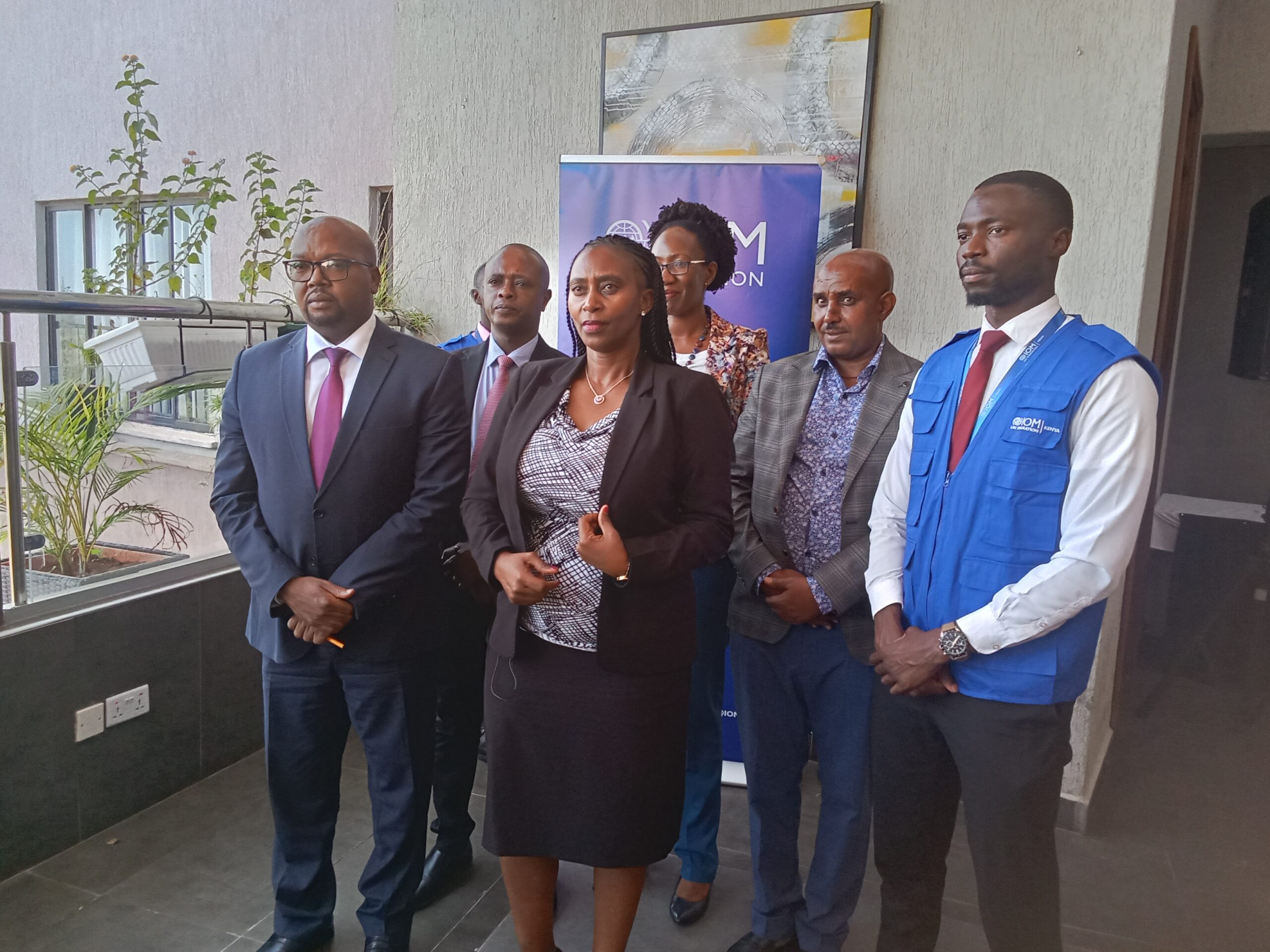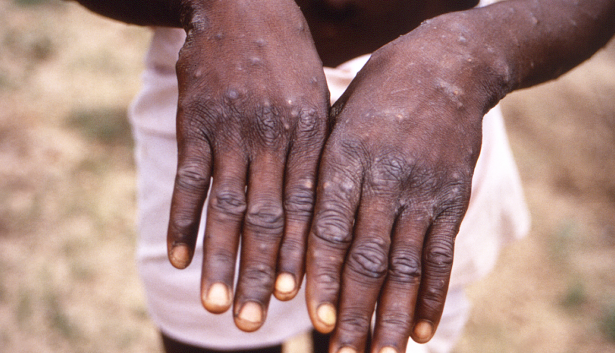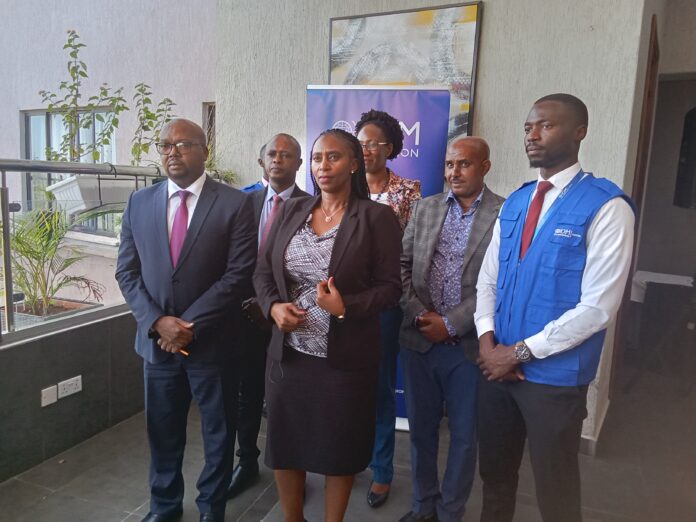|
Getting your Trinity Audio player ready...
|
By Mary Mwendwa
Nairobi, Kenya: Kenya is prepared and on high alert to combat the spread of Mpox disease. This was recently confirmed by Mary Muthoni, Permanent Secretary of the Ministry of Health in Kenya. Speaking during a national Taskforce for Response to Mpox and Marburg Virus preparedness meeting in Nairobi, PS Muthoni noted that Kenya has so far reported 14 cases of Mpox and one death.
During a media briefing together with other Ministry of Health officials and partners including the Centre for Diseases Control and Prevention (CDC), International Organization for Migration (IOM), and Kenya Red Cross among others the PS affirmed how they were prepared in case of any reported cases.
“We may not have seen an increase in the number. However, our neighbors are still having cases that have been identified. It is important to note that we are not out of the woods.”
PS Muthoni further stated, “We must remain very vigilant so that Mpox is not going to be here with us in the long run. I want to say that our risk communication has been enhanced to ensure that every person in the country gets to know what exactly they are supposed to do.”
The PS emphasized that Personal hygiene is of the essence to curb the spread of the disease. Adding that, “It is important to note at the border points, we have continued with our screening. And culminatingly, we have been able to screen more than 1.5 million people at the points of entry.”
“And equally, we have also been able to do sensitization to the people at every point of entry. We want to continue and ask people to join hands with us so that this disease may be kicked out of the country.”

The PS also noted that because of the influx of people traveling from one country points of entry are very key in terms of screening and surveillance, to just ensure that whoever comes into our country is safe.
“We have partners on the ground. We have counties on the ground. We have the private sector. We move in with one plan. One location. One solution.”She said.
The Ministry also confirmed that apart from laboratory testing they were using genomics, to help in sequencing cases that test positive and are able to predict this according to the type of the disease that is occurring.
Cross-border migration
Gerry Mtike, a Public Health Officer from IOM said that Kenya is a country where there’s a lot of influx of individuals who move across the border on a consistent and daily basis.
“We’ve seen also that the country has been able to screen 1.5 million people in this response time, which is a big feat for any country on this kind of scale. “
“As partners, we’re all coming together, pooling our resources, and making sure that the activities, number one, are not being duplicated across the board and , that they’re coordinated by the government because that’s the way that we can make the biggest impact from our end.”
Mtike explained how they work with other partners on cross-border issues.” When looking at the cross borders in search of individuals, we’re collaborating very closely with other agencies like the WHO and the Red Cross, IOM’s mandate is to make sure that migration is safe, convenient, and regular. We’re looking to deploy more tools that can conduct more mapping to inform on these unofficial points of entry and then we can understand and look at mobility flows and then be able to prioritize where we can put our response activities as well as resources for further support to the country.”
“Our work is to ensure that the response plan is there, that we know what to do when something is reported. But more important is that we don’t have any cases coming to the country and the team today has just made emphasis on increasing our suspicion indexes so that any case is caught quite early enough. The distribution plan is quite clear, you will see it or you continue to see it through our ministry communication channels, partner communication channels, and of course from the private sector to make sure this is implemented across the entire country.”
Interventions: Vaccines
Sultan Matendechero, Deputy Director General at the Ministry of Health stated that when there are public health emergencies of this nature, especially outbreaks, epidemics, and pandemics, mainly this kind of epidemics that are brought about by viruses, then one of the most effective interventions is through vaccination.
“For the Mpox outbreak, which we are now all aware was declared by the World Health Organization to be a public health emergency of international concern, and we are working closely with the Africa CDC to s benefit from the vaccination.”
“Unfortunately, the biggest problem we are facing now is the availability of the vaccines, so even if we had the ability to purchase, we are not able to get the vaccines. Secondly, even the vaccines that are available are also quite pricey, and so we are having a little difficulty in being able to obtain these vaccines. However, we are now employing a regional approach so that we have been able to quantify the quantities that we require as an African region, and we have determined that for the Mpox outbreak, we actually need about 10 million doses of Mpox vaccines.”
Matendechero talked about how they work with the CDC to provide these interventions.
”Africa CDC has been able to mobilize some doses of vaccines. There is a first batch of 200,000 doses which was received and deployed to the most deserving areas.”
He further revealed that there were plans to be able to bring in other doses, about two billion doses, to come in towards this region. “We are now working as an incident management team for the country to be able to continue because we are working very closely with the African CDC so that we can be taken through the required procedures to be able to request these vaccines and to be able to receive them so that we can deploy them. We had actually come up with an estimated timeframe, probably by the end of the year, and then we should have received some doses that we can start deploying to the most at-risk populations in the country.”
“We are expecting that when we receive the vaccines, especially the ones that will be made available through the Africa CDC, then we start vaccinating. As a country, we are also looking at other opportunities to be able to acquire vaccines, we are looking at other mechanisms outside of this regional approach, where we can also be able to acquire and procure vaccines.”
Hentsa Haddush Desta, National coordinator for CDC confirmed that Africa has reported about 45,000 cases of Mpox and they are mobilizing partners, resources, and member states to achieve the vaccination goal. “We have three countries that recently started vaccination; DRC, Rwanda, and Nigeria.
“These countries have more than 9,000 cases. And we have about 11,000 cases in total. vaccination is very important to address these issues, to break the transmission, to stop the outbreak, and we have to sustainably prevent transmission of such diseases. So, we are working with our partners, our philanthropists, and our donors, to mobilize resources for these vaccines. Up to now, we have secured about 5.6 million doses.”

Desta said some of the vaccines have already been distributed to member states, DRC, Rwanda.”We are collaborating with WHO, UNICEF, Cambodia, Rwanda, and the UN organizations to achieve this effort to vaccinate, We are going to work hard to fight the disease together.”
Further noting that most of the cases are circulating through transport corridors. The trans-border is crossing from Central Africa to West Africa, to South Africa, to West Africa. “It’s interlinked, and we need to approach it with a consistent continental vaccination strategy to address all these and vaccinate all the people to stop transmission.”
Mpox virus(formerly known as Monkey Pox) symptoms include fever, skin rash, headache, swollen lymph nodes, and body aches. It is spread through direct contact with an infected person and through respiratory droplets.














